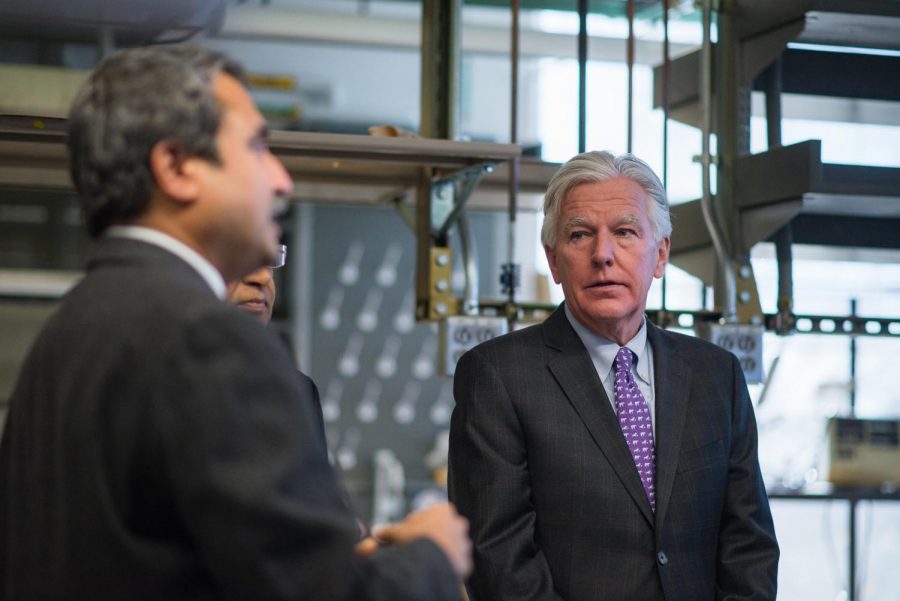On March 13, Massachusetts Attorney General Maura Healey’s office announced they will not take legal action against Mount Ida College or its Board of Trustees following its closure in 2018.
The Newton college, which closed at the end of the 2017-18 academic year, currently serves as a satellite campus for the flagship campus of the University of Massachusetts. In a letter acquired by Inside Higher Ed, officials from Healey’s office wrote that investigators found that Mount Ida officials had “ample notice” of the college’s funding problems and failed to develop a plan for students in the case of closure, possibly violating state consumer protection laws.
However, Assistant Attorney General Jonathan Green and Student Loan Assistance Unit Director Arwen Thoman added that pursuing legal action “would not be in the public interest,” given that the college is now closed. The findings of their report ended with the “hope and expectation” that regulators and other institutions will implement safeguards to prevent any similar occurrence.
In a statement to Insider Higher Ed, former Mount Ida president Barry Brown said the decision “speaks volumes” and that the college “complied with the law at all times.” Simultaneously, statements from both Brown and the Board of Trustees said the letter contained inaccuracies about the closure of the college.
“The college’s leadership undertook extraordinary efforts to support its students and employees during exceptionally difficult circumstances,” the board said in its statement.
Critics of the decision have been quick to highlight the Attorney General’s numerous lawsuits against the U.S. Department of Education and Secretary of Education Betsy DeVos.
Laurel Collins, a Woburn, Mass. resident and mother of a former Mount Ida student, asked why Healey “can’t take care of the kids in her state.”
“I wanted the Attorney General’s office to complete their investigation,” Collins said, adding that Healey “never bothered to sit down” with her family or other students’ families seeking action. Since she found out about the closure of her daughter’s college on Facebook last year, she has testified in front of the state Department of Higher Education and tried to work with officials to bring a positive solution for families and students.
Collins added that she supported most of Healey’s initiatives, but was “highly disappointed” in the Mount Ida decision, blaming influence from the UMass and its president, Marty Meehan, at the state level, for influencing the case.
“[Healey is] a good person who made bad, bad, bad decisions with this issue.”
Collins’ daughter, Julia, is now a sophomore studying veterinary technology on the Mount Ida campus as a UMass student but according to Laurel, the experience isn’t equal to those of students on the main campus.
“It’s the same tuition, but they’re getting 1/30th of the education,” she said, pointing to the “state-of-the-art” Amherst campus.
While veterinary technology courses are taught in person, Julia takes online courses to complete the remainder of her electives and general education courses, because “nobody from Amherst wants to drive up to Newton to teach them,” Laurel said.
“It’s not right, and it’s not okay.”
In response to a Boston Globe column criticizing her decision, Healey wrote that her office “made a decision, based on the law and the facts, not to sue a school that had already closed its doors for good.”
“Bringing a claim against an essentially defunct and broke Mount Ida would waste taxpayer dollars and wouldn’t provide meaningful relief to former Mount Ida students,” Healey wrote. “Instead, we spent time and resources helping students transfer their credits and on ensuring that this never happens again.
Moving forward, a new Office of Student Protection has been founded in the state Department of Higher Education, requiring schools at risk of closure to make contingency plans guaranteeing that students can complete their degrees.
Placing most of the blame on Mount Ida officials for the closure, Collins said she still feels the University isn’t being faithful with the deal they made to acquire Mount Ida, pointing out that it has yet to be developed as a true internship-focused base.
The campus will also be used from April 15 to April 28 as a filming location for “Defending Jacob,” an Apple TV series featuring Chris Evans of “Captain America” fame. Maintaining that she was a fan of Evans, Collins added that she felt it was inappropriate given that students will still be in classes and the University never said anything about the campus being used in this way.
“I don’t feel like [UMass] are educators, I feel like they’re real estate agents.”
Kathrine Esten can be reached at [email protected] and followed on Twitter at @KathrineEsten.




















